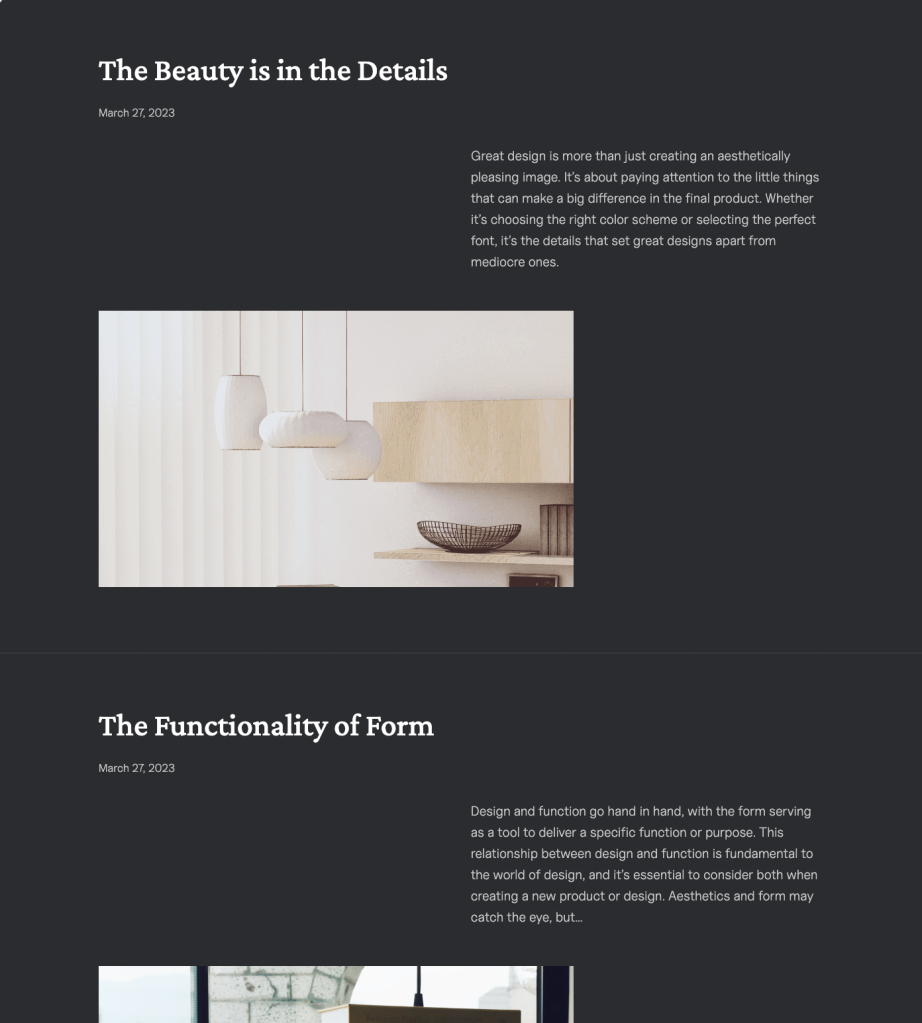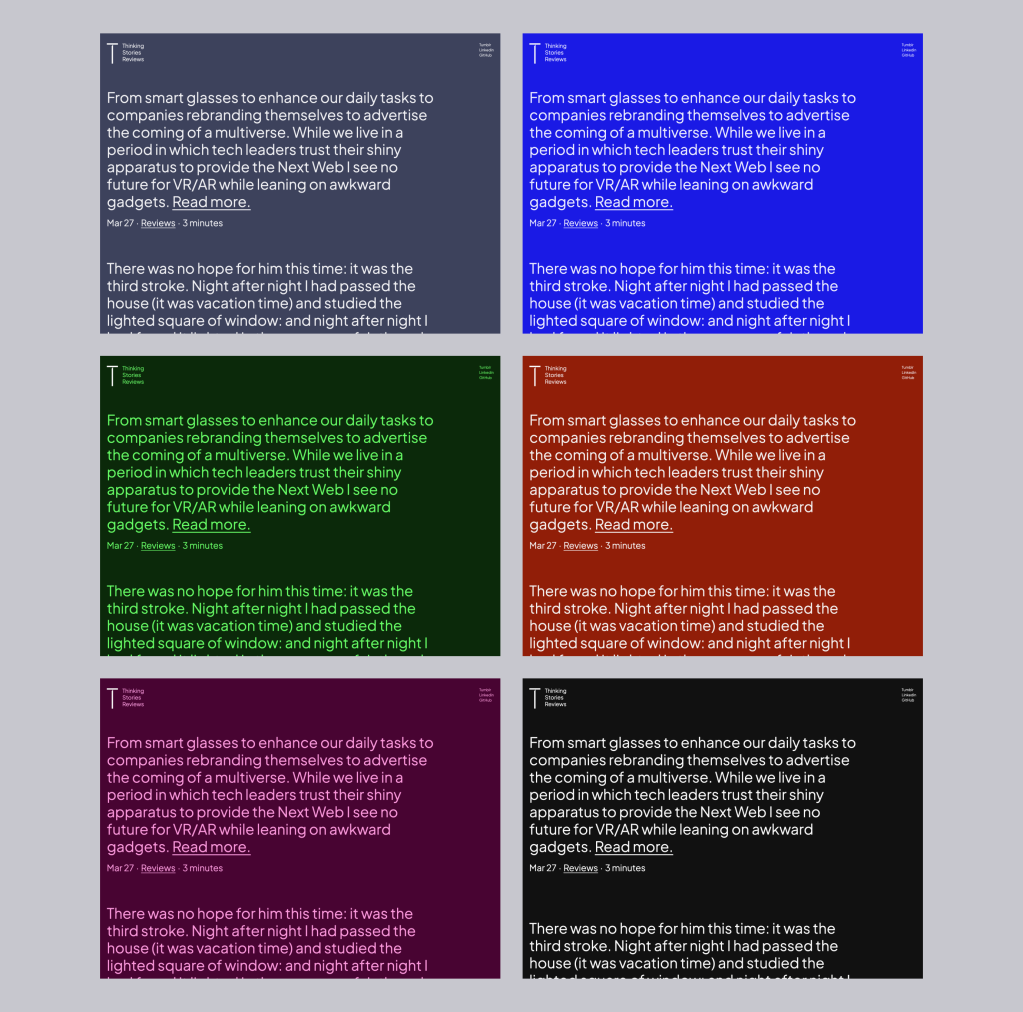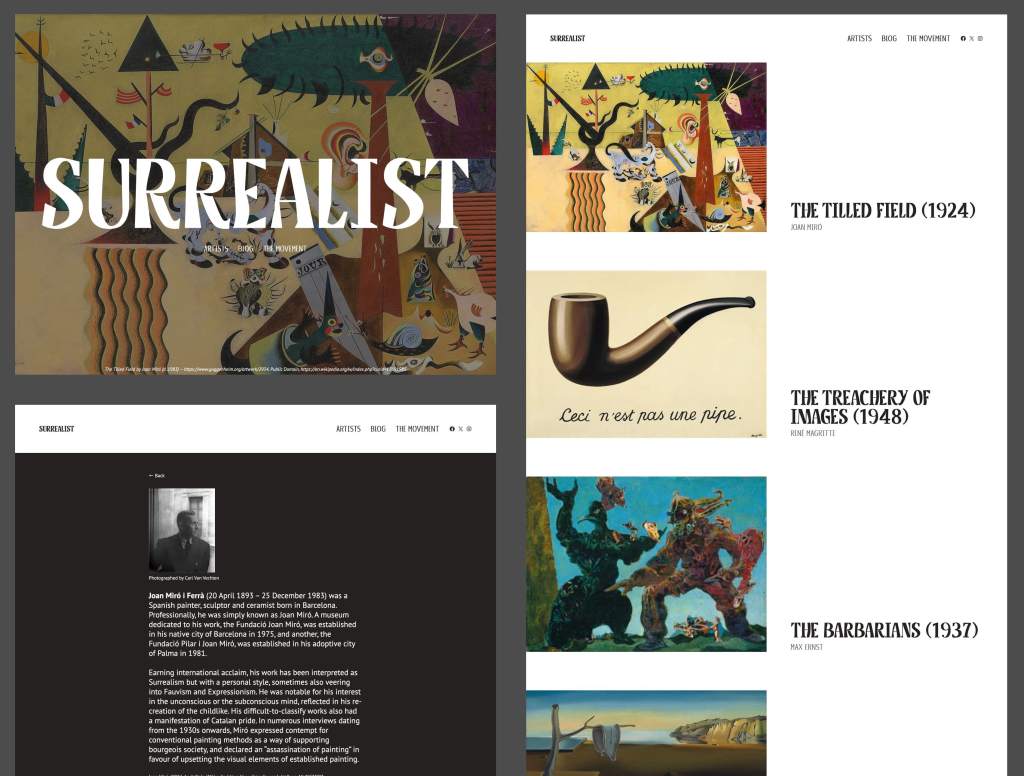Five of our favorite new themes.
WORDPRESS
Automattic CEO Matt Mullenweg details Tumblr’s future after re-org

This week, WordPress.com owner Matt Mullenweg confirmed his company would be shifting the majority of Tumblr’s workforce to other areas at parent company Automattic in light of the social blogging site’s continued financial woes. After acknowledging and explaining the meaning behind a leaked internal memo detailing the staff changes, Mullenweg then went on to field a number of questions about Tumblr’s future in an AMA (Ask Me Anything) session on his own Tumblr blog. Here, the exec responded to questions about Tumblr’s plans for existing products, like Tumblr Live, its monetization efforts, policies, and its planned integration with the decentralized social networking protocol ActivityPub, which Mullenweg had earlier said was in the works.
TechCrunch’s Amanda Silberling broke the news of the Tumblr re-org, noting that 139 of the site’s workers would be moved to other projects at Automattic, the parent company to not only Tumblr and WordPress.com, but also WP VIP, Day One, Pocket Casts, WooCommerce, and other apps and services, including the recently acquired all-in-one texting app Texts.com.
But Mullenweg’s AMA offered a lot more insight into how the company plans to run Tumblr, the blogging site it picked up from Verizon for $3 million in 2019 Though the acquisition price was a steal — especially given Yahoo earlier bought it for over a billion dollars — the business itself is losing $30 million per year. That necessitated the re-org.
Below are some of the key takeaways from Mullenweg’s exchange with Tumblr users during the AMA, which shed light on what’s ahead for Tumblr in 2024 and beyond.
When are the staff changes happening?
Mullenweg said the changes to the Tumblr team will happen on December 31, 2023. He said the team will be presented with other projects at Automattic and will be able to rank their top three picks, as staff is reassigned. The team impacted is known as “Bumblr” which is the internal name for the product side of Tumblr.
The move was not a surprise, he added — the Tumblr team has known for over a year that if it couldn’t get the revenue up, some of them would have to work on other things that make the company money.
Tumblr staff being reassigned will be able to choose from the following: WP.com, WooCommerce, Jetpack, Day One, Pocket Casts, WP VIP, .Org, Applied AI, Texts, self-serve advertising (Blaze), Newspack, Pressable, and Gravatar.
Why were some people laid off without being reassigned?
Mullenweg admitted that the company, like many, does engage in performance management reviews and sometimes that means people are let go.
“Automattic is continuously hiring and firing people to try to create the best open web tech team in the world,” he wrote.
In other words, some people were laid off but it wasn’t because of Tumblr’s financial woes.
Will Tumblr’s localization plans be impacted by the staff changes?
Mullenweg confirmed that translation and localization will continue, and are not impacted by the changes.
What does success at Tumblr look like?
The WordPress exec said a successful version of Tumblr would see it becoming a place that “everyone goes to hang out online” with a “billion micro-communities.” He didn’t share specifics, like how much money that would require, though.
What are Tumblr’s monetization plans?
Tumblr today offers a subscription which is currently the best way to support the site, Mullenweg said. Users can choose from either the Tumblr Supporter badge for $29.99/year or $2.99/month or subscribe to a similarly-priced ad-free offering. Subscribing on the web instead of in-app allows Tumblr to keep more of the revenue as it doesn’t have to pay app store commissions.
However, out of Tumblr’s 11.5 million monthly active users, only 27,000 are subscribers (0.2%). If 10-20% subscribed, Tumblr would be in good shape, Mullenweg noted. Then, “we could run the site forever,” he shared.
What’s more, he said the Tumblr Supporter badge hasn’t been very successful on its own, with only 2,300 total subscribers to that product.
In response to another question, Mullenweg suggested that Tumblr users could gift subscriptions, ask people to subscribe, and be supportive of advertisers and brands that are supporting Tumblr.
He mentioned, too, some changes ahead for TumblrMart. While the virtual goods and subscriptions will continue, Tumblr will likely have to “scale back the physical stuff” as it was only profitable on a small scale. (And the person running it doesn’t want to anymore, Mullenweg noted.)
In other responses, Mullenweg appeared to be considering how to support Tumblr via ads in different ways.
What’s the future of advertising on Tumblr?
Mullenweg said the vast majority of ad revenue on Tumblr is from programmatic ads, due to a number of factors, including the site’s declining traffic and various attacks on brands running ads from Tumblr’s user base. He added that self-serve ads with Blaze have “gone well” and that tooling can be re-used across Tumblr, WooCommerce, and WordPress.
Still, he noted that Blaze and Ad-free’s adoption is so small they can’t support Tumblr’s some 1,000 servers or its employee salaries.
The exec added he’s thinking about new ways to allow advertisers to more easily duplicate campaigns they’re running elsewhere with similar formats, which would raise the quality of Tumblr’s ads. This could be targeted at brands looking to move some percentage of their ad budget away from Twitter/X, for example.
Will Tumblr support moving blogs to WordPress.com?
Here, the exec was a bit vague on future plans, but said Tumblr today has a full export option available and WordPress can import content. However, actually moving Tumblr blogs to WordPress.com would be a “tricky migration,” Mullenweg said, but hinted that new technology like AI will make it easier.
How will Tumblr’s product change in 2024?
Mullenweg admitted the team had been spread too thin and spent too much effort on things that didn’t work. In 2024, the company will “hone in on” the parts of Tumblr people love and put an end to the things that don’t work.
He suggested that Tumblr will continue to innovate, as well, saying:
“We’ll continue [to] stay on the bleeding edge of what technology allows and enables, and hopefully provide pressure for other social networks to step up their game, as they have with dozens of features Tumblr invented and others followed.”
Areas of interest he cited were images, which he said were easy, but noted streaming high-res video would need to be paid (but not expensive.) He also noted that Automattic has some video technology it could lean on with VideoPress.
In terms of missed opportunities, Mullenweg lamented the demise of the Post+ creator subscription, which would have directed all funds to creators without Tumblr taking a cut. But misinformation about fan fic writers being sued by copyright holders led to a coordinated attack campaign that led to every launch creator canceling the program, he said.
“It was sad, because this was a feature users and creators said they wanted, and we prioritized making users money over projects that would make us money,” Mullenweg wrote.
Is Tumblr Live shutting down?
The exec hinted that Tumblr Live — a livestreaming video feature that Tumblr users haven’t liked — could be chopping block. He said that in 2024 Tumblr would “streamline some of the extra things that were launched (like Live) that haven’t gotten the adoption we hoped.”
In responses to other questions, Mullenweg also said that Tumblr would “sunset or rollback some things we tried that didn’t work,” and even outright stated that Live itself will be re-assesed in January 2024 as to “whether it should be a part of the Tumblr app anymore.”
How Tumblr is dealing with trolls?
The troll question was a bit off-topic in terms of Tumblr’s future as a business, and instead spoke to the future of the site’s culture. Mullenweg said that he believes “super trolls” only account for less than 0.5% of Tumblr’s user base. Still, they can have an outsized impact, he admitted.
Despite the staff changes, the company plans to increase its investment in Trust & Safety — the team that deals with bots, trolling, attacks, and hate speech — and will ban accounts engaging in these behaviors. It will also prevent those trolls from registering new accounts and repeating their behavior, he said.
What’s going on with the ActivityPub integration for Tumblr?
Mullenweg announced a year ago that Tumblr would add support for ActivityPub, the decentralized social networking protocol that supports apps like Twitter competitor Mastodon and others. But, apparently, that project has been put on the back burner. A Tumblr employee said it’s now something on the “Tumblr Labs” list and is being evaluated.
In the AMA, Mullenweg only vaguely cleared up the confusion over the state of the project by saying that:
“Every future for Tumblr that I’m involved in will include it being more open, supporting more standards, APIs, and open source.”
Will Tumblr un-ban porn?
Nope. Art is allowed, but not “hardcore stuff,” Mullenweg said.
WORDPRESS
New WordPress.com Themes for May 2024 – WordPress.com News

The WordPress.com team is always working on new design ideas to bring your website to life. Check out the latest themes in our library, including great options for bloggers, visual designers, and art aficionados.
Fewer is perfect for showcasing portfolios and blogs. With a clean, minimalist design, it offers excellent typography and style variations that make it easy to present your work or business. Fewer is highly versatile, offering a range of customizable options that allow you to tailor your site to your exact needs.
Click here to view a demo of this theme.
Ron is a theme that’s laser-focused on delivering an exceptional reading experience. It’s set apart by its offset post layout and sticky navigation. We’ve also intentionally omitted a header, allowing readers to dive straight into the content without distractions.
Click here to view a demo of this theme.
Texty isn’t just another blog theme, it’s a celebration of pure, unadulterated storytelling. This theme dances to its own beat by relying entirely on post excerpts on the homepage to captivate and intrigue. A remix of the beloved Issue theme, Texty can also bring a burst of color to your blogging with its vibrant variations in blue, maroon, burgundy, and neon green. Whether you’re sharing tales of adventure, pouring out your thoughts, or spinning poetry, this theme provides the perfect backdrop for your journey. Let your creativity run wild and let your words shine, because with Texty, your stories are the stars of the show.
Click here to view a demo of this theme.
Fontaine is a dynamic portfolio and personal profile theme that celebrates minimalist design and Brutalist aesthetics. Created especially with visual designers in mind, Fontaine gracefully steps back, allowing your work to shine and captivate your audience. With a strikingly simple yet dynamically elegant design, Fontaine’s dramatic font scale and transparent header (check out the demo to see this in action!) blend seamlessly to create compelling contrasts and modern sophistication. At its heart, Fontaine invites you to showcase your work and share your story with confidence.
Click here to view a demo of this theme.
Inspired by the iconic art movement, Surrealist merges clarity with a touch of whimsy, capturing the essence of Surrealism in every pixel. In our font pairing of PT Sans with Kame, we’ve set the tone for an immersive, delight-inducing experience.
As you navigate the front page, you’ll encounter the statement-making site title, inviting you to explore further into the quirky atmosphere of Surrealist. With distinctive design treatments and blocks that spark the imagination, Surrealist invites you to unleash your creativity and embark on a journey of self-expression.
Click here to view a demo of this theme.
To install any of the above themes, click the name of the theme you like, which brings you right to the installation page. Then click the “Activate this design” button. You can also click “Open live demo,” which brings up a clickable, scrollable version of the theme for you to preview.
Premium themes are available to use at no extra charge for customers on the Explorer plan or above. Partner themes are third-party products that can be purchased for $99/year each on the Creator plan and above.
You can explore all of our themes by navigating to the “Themes” page, which is found under “Appearance” in the left-side menu of your WordPress.com dashboard. Or you can click below:
Join 110.7M other subscribers
WORDPRESS
5 Must See Telegram Plugins for WooCommerce

Telegram is one of the most popular instant messaging apps for encrypted communication. You can use it for more than getting in touch with your friends though. For instance, with the right plugins, you can send store updates, deals, and order notifications to it. Here are 5 telegraph plugins for WooCommerce you shouldn’t miss:
🛠️ Divi Builder drag & drop page builder for WP
Notification for Telegram: this plugin sends Telegram messages when you receive a new order or order status changes. It lets customers add their own Telegram nickname.
WooCommerce Telegram Order Notification: another plugin that sends WooCommerce order notifications to your Telegram app. Notifications will include order number, status, customer name, and other info.

WP Telegram: this plugin integrates your WordPress site with Telegram. It can send posts automatically to Telegram when published or updated. It supports multiple channels and chats. It supports WooCommerce products and other custom post types.
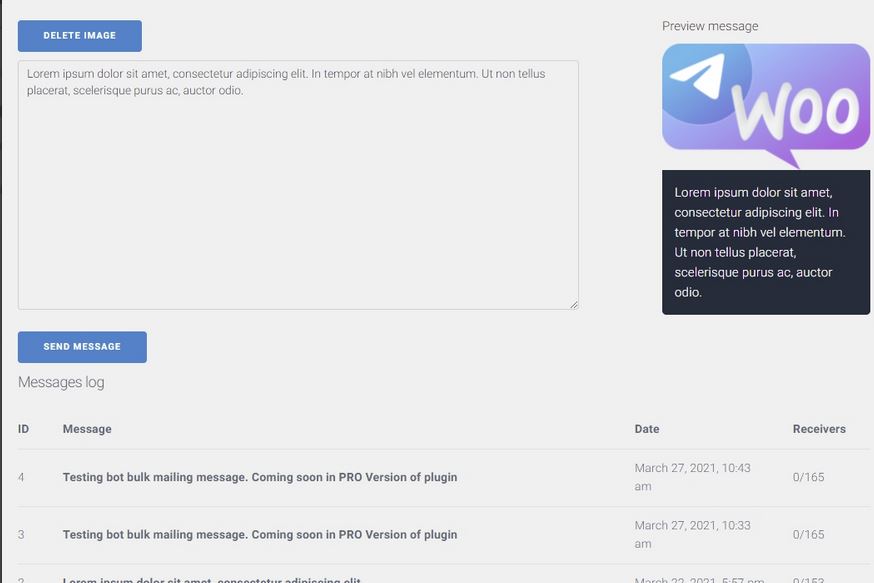
Bot for Telegram: this plugin helps you sell products via Telegram. You simply have to create a bot and add it in the setting page. It supports simple, grouped, affiliate, and variable products.
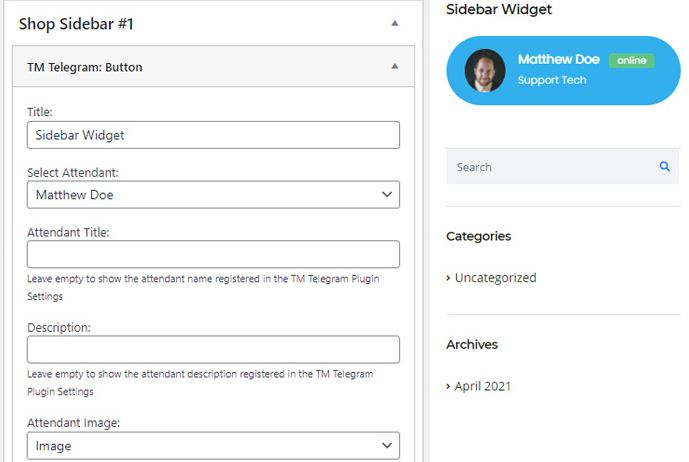
Master Telegram Chat Initiator: a handy plugin that shows a Telegram button on your WooCommerce site. It supports Elementor and WPBakery Pagebuilder. It allows for multiple agents. It has a widget that lets you show the button anywhere.
Have you found better plugins for Telegram? Please share them here.
Keep reading the article at WP Solver. The article was originally written by WordPress Jedi on 2024-01-02 10:39:43.
The article was hand-picked and curated for you by the Editorial Team of WP Archives.
WORDPRESS
The 9 Best eCommerce Hosting Providers in 2024

Are you ready to embark on a new adventure by launching an e-commerce store that will allow you to rake in some serious cash? Fortunately, you have a wide range of hosting options that will suit your new endeavor, depending on which features matter to you most and which ones fit your budget. We make it easier for you to decide with these nine best eCommerce hosting solutions.
Whether you want free SSL certificates for your online stores or are looking for budget-friendly options, we have you covered.
Start taking advantage of these hosting providers for your eCommerce sites today.
TL;DR: What are the Best eCommerce Hosting Services?
Depending on what you want from an ecommerce site, you may choose to go with one of these two services:
Bluehost: Bluehost features very inexpensive hosting that is suitable for beginners who are looking to launch their first ecommerce sites. If you want the flexibility of a WordPress site with WooCommerce and other plugins, then this is the best ecommerce hosting for you.
Shopify: If you’re a little more low-tech, the easy interface of Shopify is ideal. It is uniquely designed to be an ecommerce platform only, allowing you to sell physical and digital goods with just a few clicks. It’s a bit more expensive but might be worth it to build a robust ecommerce site that functions hands-off for you.
9 Best eCommerce Hosting Providers for Reliable Websites
When it comes to finding the best e-commerce hosting provider, there are no one-size-fits-all solutions that will work for every online store. Instead, there are various services, depending on your priorities, budget, and ease of use. Here are the top nine solutions that you might consider for a reliable website.
1. Bluehost: Best for Beginners

The first and perhaps easiest ecommerce hosting solution is Bluehost. It’s ideal for beginners and users who need an inexpensive plan for their wallets, but it will require a little bit of technical know-how. Once you sign up for their hosting, you will have a one-click install for WordPress.
From here, you can utilize the WooCommerce WordPress plugin to facilitate your ecommerce website (which is a free tool that allows you to set up shop). You can put unlimited items in your storefront, limited only by your creativity and market research.
Of course, you can also utilize the endless number of plugins available via the WordPress platform. You can get people signed up for your email newsletter, monitor your traffic, and even focus on your search engine optimization with Yoast SEO. If you can dream it, you can do it with WordPress hosting on this platform.
This is why I personally love Bluehost and use it for all of my niche sites. It’s affordable, reliable, and gets the job done.
The only real drawback of Bluehost is its storage limits. Their cheapest plan has 10 GB SSD storage and their most expensive plan will come with 100 GB SSD storage.
Pricing: Starting at $2.95 per month for Basic
2. Shopify: Best E-Commerce Hosting with Website Builder
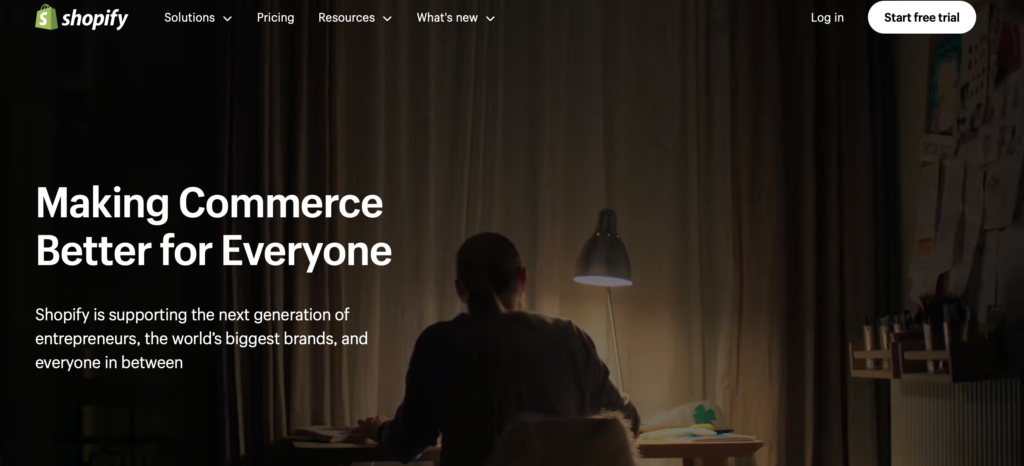

Maybe you need something a bit more robust than Bluehost, something that can help you create an ecommerce store. Shopify is the solution you have been searching for because it acts as both your hosting provider and a website builder.
Even low-tech people with minimal coding knowledge get websites up and running quickly on Shopify. They have thousands of templates and apps you can use to customize the appearance and functionality of your storefront with their website builder. It’s a drag-and-drop editor with What You See Is What You Get (WYSIWYG), which makes it easy for a novice coder to start right away.
They have affordable transaction rates, allowing you to implement their payment gateways as quickly as possible. Plus, you get shipping discounts, inventory management tools, and 24/7 chat support.
For more information on this ecommerce platform, see our full Shopify review here.
I have built several Shopify stores and found it to be quite intuitive. I’ve been happy with the selection of themes, the ease of use, and even the pricing. It’s a little expensive compared to Bluehost, but it’s worth it to get an ecommerce business off the ground quickly.
Pricing: $29 per month and up
3. Siteground: Best for a WordPress Website


If you know that your new online store is going to be a WordPress site, then Siteground should be your first stop. Like Bluehost, Siteground features some of the best e-commerce hosting services with a quick and simple WordPress installation. You can get running quickly with plugins already installed to maintain a brand-new store.
The best part of setting up an e-commerce store with Siteground is that you can sell digital and physical goods, so your store won’t be limited as you scale and expand your offerings.
It’s also worth noting that Siteground has some of the fastest loading speeds for web hosting. Compare it to some of the others in our detailed showdown.
They tend to offer great introductory rates for the first year, but it’s worth noting that these prices are much higher if you choose to renew for the second or third year. For a comprehensive look at how this hosting provider stacks up, see our full Siteground review here.
Pricing: Starting at $2.99 per month
4. A2 Hosting: Most Affordable for Advanced Features


If you’re looking for the best eCommerce hosting at an affordable rate, then A2 Hosting might be the fit for you. It has more advanced features than Bluehost or Siteground, but it still offers a competitive price for a robust online store. What can you expect from A2 that would make you sign up now?
Take a look at the benefits of building your eCommerce website on A2:
- Fast loading times
- Free SSL certificate
- Automatic backups
- Server resources on three continents
- Good uptime.
Not only do you get premium web hosting, but you won’t pay an exorbitant fee for their services. If your budget is more in line with Siteground than Shopify, you’ll be pleasantly surprised. Advanced features don’t necessarily come with a high price tag.
Pricing: Starting at $2.99 per month
5. Hostgator: Best on a Budget


If you’re looking to build eCommerce websites on a budget, then Hostgator might be your ideal web hosting provider. Unlike Shopify, which can be a premium tool, you can take advantage of the eCommerce features on Hostgator for a third of the price.
With Hostgator’s e-commerce web hosts, you get robust features like 40 GB storage, gift card, and wishlist functionality, a free SSL certificate, a free domain for the first year, and even access to powerful tools like Yoast SEO.
Plus, you never have to worry about losing your website. They have automatic daily backups for the first year. If security features and uptime are important to you, then Hostgator has a lot to offer. But, if you want less expensive web hosting, you can also use this platform for WordPress hosting with a plugin like WooCommerce.
Compare Bluehost vs Hostgator here to see which one is the better fit for your web hosting.
Pricing: $9.95 per month for an online store
6. Liquid Web: Best for Increased Traffic


Liquid Web is a top contender for the best e-commerce hosting provider if you’re concerned about some of the less expensive options’ lower uptime. Liquid Web hosting offers a 100 percent uptime promise, so you’ll never have to worry about clients missing out on your offering.
Online stores can really benefit from this hosting provider if they’re in a hurry to start selling. Like some of the other e-commerce hosting services included here, it offers a one-click install for WordPress so that you can begin installing plugins and setting up your storefront.
They also have sixteen compliant data centers around the globe with on-site technicians.
Apart from their robust e-commerce features, they have excellent customer support. Chats are answered within the first minute in case you have any questions about your new e-commerce site.
Pricing: Managed WordPress starting at $17.50 per month
7. InMotion Hosting: Best for Quick Setup


Sometimes, the most important aspect of starting online stores is simply to get off the ground. If setup speed is one of your primary concerns with your new web hosting, then InMotion Hosting may be the perfect solution for you. They use a one-click install with Softaculous, which makes setup a breeze.
Like many of the other ecommerce hosting providers, InMotion still offers a free SSL certificate for your online store, can integrate with WooCommerce and Magento, and includes cPanel for your WordPress management.
Plus, you won’t have to worry about getting in touch with customer support. Their team is available around the clock, 365 days per year. Reach out via phone, live chat, or email to get questions answered and issues resolved ASAP.
Pricing: Shared WordPress hosting starting at $3.99 per month
8. IONOS: Best Premium Hosting Provider


Getting an online store started is hard enough. IONOS aims to make it easy, acting as a premium hosting provider. Their speed is unparalleled, with fast performance and even security features like DDoS protection and automatic backups for your online store.
The downside to using this eCommerce hosting solution is that their most inexpensive plan is a bit more restrictive. On their Essential plan, you get only 10 GB of storage and 10 databases.
However, there are some perks to this eCommerce hosting provider as well: you get a free domain for the first year, professional email access, and daily backups. Like InMotion, they offer free 24/7 support to ensure your business has everything it needs to function at the highest level.
IONOS is a great option if you are willing to pay a little extra for your e-commerce hosting provider. It isn’t expensive enough to set you back, but it is more than Bluehost. Plus, you’ll be locked into a three-year term for your online store.
Pricing: Starts at $4 per month
9. Dreamhost: Best for Fast Loading Times


Last but not least, Dreamhost is one of the best ecommerce hosting providers because it features some of the fastest loading times on the market. Some of the other benefits their ecommerce website will include:
- Free domain
- Unlimited traffic
- One-click WordPress installer and free migrations
- Free SSL certificate
- Inexpensive email add-on.
When your online store requires better uptime, Dreamhost is also worth considering. Competitive with Liquid Web, Dreamhost features an uptime promise of upwards of 99.99 percent, which makes it extremely competitive for your e-commerce store.
If you aren’t sure whether Dreamhost is the right fit for your eCommerce business, you have nothing to lose. They feature a 97-day money-back guarantee to ensure that their service is the right fit for you.
Compare Siteground vs Dreamhost here for a head-to-head comparison.
Pricing: Starting at $2.59 per month
Final Thoughts on The Best ECommerce Hosting Options
Finding the best ecommerce hosting provider can feel overwhelming when all you want to do is launch a new online store. The good news is that there are tons of options out there so that you can find an ideal solution for your storefront.
No matter what you want to sell, how you want to host it, and what you can afford, one of these providers will work for your ecommerce website.
Which one is right for you?
Consider which benefits you need in an online store, and you’ll find a hosting provider that works for you!
-

 MARKETING3 days ago
MARKETING3 days ago18 Events and Conferences for Black Entrepreneurs in 2024
-

 MARKETING5 days ago
MARKETING5 days agoAdvertising on Hulu: Ad Formats, Examples & Tips
-

 WORDPRESS6 days ago
WORDPRESS6 days agoBest WordPress Plugins of All Time: Updated List for 2024
-

 MARKETING6 days ago
MARKETING6 days agoUpdates to data build service for better developer experiences
-

 WORDPRESS6 days ago
WORDPRESS6 days agoShopify Could Be Undervalued Based On A Long-Term Horizon
-

 PPC6 days ago
PPC6 days agoLow Risk, High Reward YouTube Ads alexking
-

 WORDPRESS4 days ago
WORDPRESS4 days ago5 Must See Telegram Plugins for WooCommerce
-

 MARKETING3 days ago
MARKETING3 days agoIAB Podcast Upfront highlights rebounding audiences and increased innovation










